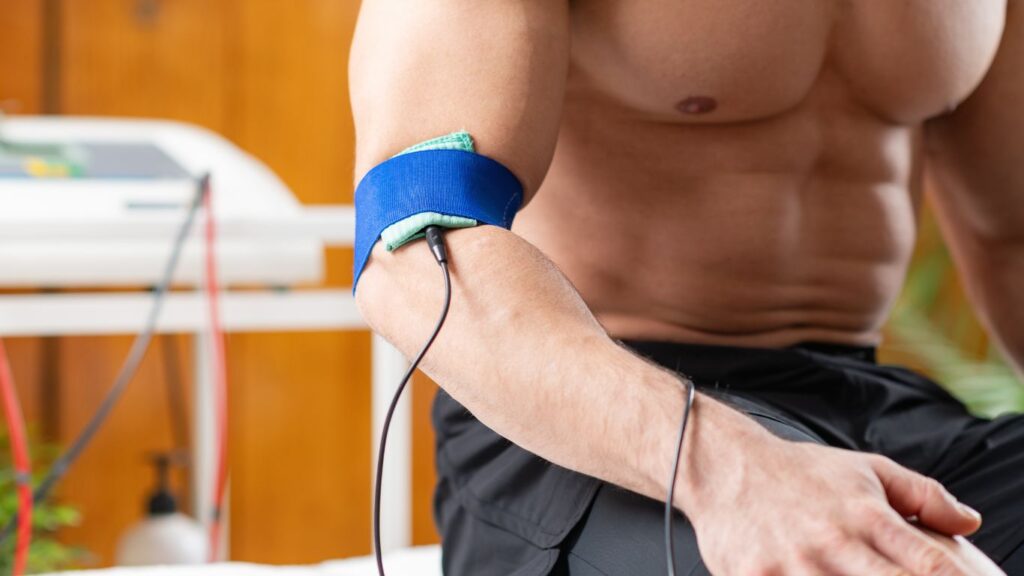Blood pressure is a vital indicator of heart health, with high blood pressure (hypertension) being a significant risk factor for cardiovascular diseases. Does being an athlete impact blood pressure levels? This article explores whether athletes, particularly those engaged in endurance and strength training, have lower blood pressure than non-athletes. We’ll review recent research, compare various factors, and provide health recommendations based on the findings.
Understanding Blood Pressure
Blood pressure measures the force of blood pushing against the walls of your arteries. It’s recorded as two numbers:

- Systolic Pressure (the top number): Measures the Pressure in your arteries when your heart beats.
- Diastolic Pressure (the bottom number): Measures the Pressure in your arteries when your heart rests between beats.
Athletic Lifestyle and Cardiovascular Health
An athletic lifestyle involves regular, often intense, physical activity, which has numerous cardiovascular benefits. These include improved heart function, increased blood vessel flexibility, and better circulation. Such activities are believed to contribute to healthier blood pressure levels.
Research Findings on Athletes’ Blood Pressure
Numerous studies support the idea that athletes tend to have lower blood pressure compared to non-athletes:
- A study published in the European Heart Journal found that athletes exhibit significantly lower blood pressure levels, particularly those involved in endurance sports.
- Research from the American Heart Association indicates that regular physical activity, including sports participation, reduces the risk of developing high blood pressure.
- A British Journal of Sports Medicine meta-analysis suggests that engaging in moderate to high-intensity physical activity, common among athletes, effectively lowers blood pressure and improves overall cardiovascular health.
Factors Influencing Blood Pressure in Athletes
Several factors influence blood pressure levels in athletes:

- Type of Training:
- Endurance Training: Running, cycling, and swimming are linked to lower blood pressure due to their continuous aerobic nature.
- Strength Training: Weightlifting and resistance exercises also benefit blood pressure, though the effects can vary based on intensity and duration.
- Resting Blood Pressure:
- Athletes typically have lower resting systolic and diastolic blood pressure compared to non-athletes.
- Blood Pressure Response to Exercise:
- Athletes experience more stable blood pressure responses during physical activity and quicker recovery times post-exercise.
- Incidence of High Blood Pressure:
- The incidence and risk of developing high blood pressure are generally lower in athletes due to the protective effects of regular physical activity.
Comparisons: Athletes vs Non-Athletes
When comparing athletes and non-athletes, several differences in blood pressure dynamics emerge:
- At Rest:
- Athletes usually have lower systolic and diastolic readings.
- During Physical Activity:
- Non-athletes may experience higher spikes in blood pressure.
- Recovery Patterns:
- Athletes show quicker normalization of blood pressure post-exercise.
- Long-term Risk:
- Athletes have a reduced risk of hypertension over their lifetime.
Health Implications and Recommendations

The findings suggest that an athletic lifestyle, whether through endurance or strength training, can significantly benefit blood pressure and cardiovascular health. Integrating regular physical activity can be a preventive measure against hypertension for non-athletes or those with sedentary lifestyles.
Recommendations:
- Regular Exercise:
- Aim for at least 150 minutes of moderate-intensity or 75 minutes of high-intensity weekly exercise.
- Balanced Diet:
- Maintain a diet rich in fruits, vegetables, lean proteins, and whole grains.
- Regular Monitoring:
- Keep track of your blood pressure to catch any irregularities early.
- Consult Health Professionals:
- Seek advice tailored to your health status and fitness level.
FAQs
Do all types of physical activity lower blood pressure?
Not all physical activities have the same effect on blood pressure. Aerobic exercises, like running, swimming, and cycling, are most effective at lowering blood pressure. Strength training can also contribute, but its impact may vary based on intensity and duration.
Can non-athletes also achieve lower blood pressure with regular exercise?
Non-athletes can achieve lower blood pressure by incorporating regular physical activity into their routine. Even moderate-intensity exercises, such as brisk walking or recreational sports, can have significant cardiovascular benefits, including lower blood pressure.
Is starting an exercise program safe for someone with high blood pressure?
People with high blood pressure should consult their healthcare provider before starting a new exercise regimen. A healthcare provider can recommend appropriate and safe exercises, ensuring they do not overexert themselves and exacerbate their condition.
How long does it take to see improvements in blood pressure after starting an exercise routine?
Improvements in blood pressure can be seen within a few weeks of starting a regular exercise program. Consistency is vital; maintaining an exercise routine provides sustained benefits and long-term cardiovascular health improvements.
Are there other lifestyle changes that can help lower blood pressure alongside exercise?
Yes, in addition to regular exercise, other lifestyle changes that can help lower blood pressure include a balanced diet rich in fruits, vegetables, and whole grains, reducing sodium intake, maintaining a healthy weight, avoiding excessive alcohol consumption, and managing stress through relaxation techniques like yoga or meditation.
Conclusion
In conclusion, athletes generally have lower blood pressure than non-athletes, thanks to their rigorous physical activity routines. These benefits extend across different types of athletic training and positively impact cardiovascular health. Regular exercise and maintaining a healthy lifestyle can help manage blood pressure effectively. Are they interested in optimizing your health further? Learn more from our experts and take proactive steps towards a healthier heart.
Feel inspired to start your fitness journey? Get in touch with us today for personalized guidance!










